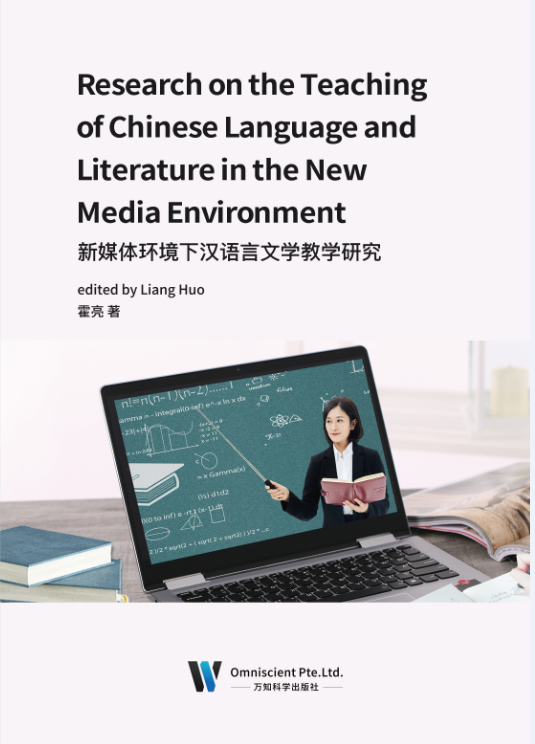
Preface
Chinese Language and Literature, as the crystallization of Chinese character culture, is a bright pearl in Chinese traditional culture. It can provide rich information for the study of Chinese culture and Chinese history. It plays an irreplaceable role in the process of carrying forward traditional culture and inheriting national spirit. It has high humanistic value and social science value.
In the new media environment, people are more and more dependent on the network, more accustomed to mobile phones, computers typing, often unable to write correctly with a pen, and this phenomenon is particularly prominent among young people. In addition, the emergence of network catchwords also has a great impact on the study of Chinese Language and Literature. Network catchwords are a new form of language gradually formed in the new media environment. They are common in QQ, wechat, microblog, forum, website comment area and other network social platforms. They reflect social phenomena or problems by innovating language and endowing it with personalized characteristics. The high degree of freedom of network speech makes the Chinese language expression and habits more and more casual, which affects the formation of correct Chinese language thinking mode and norms, and is not conducive to the smooth development of Chinese language and literature teaching.
But on the other hand, the rapid development of new media has also brought good opportunities for the development of Chinese Language and Literature. But on the other hand, the rapid development of new media has also brought good opportunities for the development of Chinese Language and Literature. On the one hand, with the help of rich network teaching resources, we can re integrate, expand and improve the teaching content and teaching methods of Chinese language and literature, increase students’ initiative and participation in professional courses learning, and objectively promote the self evolution of teachers’ team and promote the smooth progress of education reform. The combination of current hot topics on the Internet and Chinese Language and Literature teaching can make the teaching of Chinese Language and Literature return to life, help students develop good thinking mode of Chinese language and standard language habits, and make full preparation for the correct use in future work and life.
The influence of new media environment on Chinese Language and Literature has attracted wide attention of the industry. This book is compiled in this context, hoping to make its own contribution to promoting the reform and innovation of Chinese Language and Literature teaching and improving the teaching level and quality of Chinese Language and Literature by taking advantage of the relationship between new media and Chinese Language and Literature teaching.
In the process of compiling this book, many references have been referred to. Here, I would like to express my sincere thanks to the author.
Due to the limited level of the author, there are inevitably mistakes or omissions in the content of the book. Readers are welcome to make corrections so as to further improve the book.
前 言
汉语言文学作为汉字文化的结晶,是我国传统文化中的一颗璀璨明珠,能够为中华文化与中国历史的研究提供丰富的资料,在弘扬传统文化、传承民族精神过程中发挥着不可替代作用,具有较高的人文价值和社会科学价值。
新媒体环境下,人们对网络的依赖性越来越强,更加习惯手机、电脑打字,往往无法用笔正确书写文字,这种现象在年轻人群体中尤为突出。再加上网络流行语的出现,亦给汉语言文学的学习造成了不小的影响。网络流行语是新媒体环境下逐渐形成的一种新的用语形式,常见于 QQ、微信、微博、论坛、网站评论区等网络社交平台,是通过对语言加以创新,赋予其个性化特点来反映社会现象或问题。网络发言的高度自由特点,使得汉语言用语方式与习惯越来越随意,影响了正确汉语言思维方式与规范的形成,不利于汉语言文学教学的顺利开展。
但是在另一方面,新媒体的迅速发展,也给汉语言文学的发展带来了良好的机遇。一方面,可以借助丰富的网络教学资源,对汉语言文学教学内容、教学方式进行重新整合、扩充与提升,加大学生在专业课程学习时的主动性和参与度,同时客观上能够促进教师团队的自我进化,促进教育改革的顺利进行。并将当下网络热点话题与汉语言文学教学相结合,使汉语言文学教学回归生活,帮助学生养成良好的汉语言思维方式以及规范的用语习惯,为未来工作生活中的正确使用做足准备。
新媒体环境对于汉语言文学这种好坏兼有的影响已经引起业内人士的广泛关注和重视,本书在此背景下进行编写,希望借此厘清新媒体与汉语言文学教学之间的关系,为促进汉语言文学教学改革创新,提高汉语言文学教学水平与教学质量做出自己的贡献。
本书在编写过程中参考了诸多文献,在此谨向其作者表示诚挚的谢意。
由于作者水平有限,书中内容难免有所错误或疏漏,欢迎读者指正,以便本书的进一步完善。

Liang Huo, male, the Han nationality, bachelor’s degree, born in Dingzhou City, Hebei Province in May 1980. He has been engaged in teaching Chinese, Putonghua and Practical Writing for many years. He has published many papers and participated in a number of provincial and municipal research projects. In 2000, he won the second prize in the essay competition of “Harbin Institute of Technology Bada Cup” in China Youth Daily. He won the municipal third prize twice. In 2019, he won the second prize in the municipal teaching competition and the excellent award in the provincial teaching competition.
霍亮,男,汉族, 1980 年 5 月出生,河北省定州市人,本科学历。多年从事高职《语文》《普通话》《应用文写作》等教学,曾发表多篇论文,参与多项省级、市级课题研究。 2000 年在《中国青年报》“哈工大八达杯”征文比赛中获得二等奖;两次获得市级三等功; 2019 年参加市级教学比赛荣获二等奖,参加省级教学比赛荣获优秀奖。